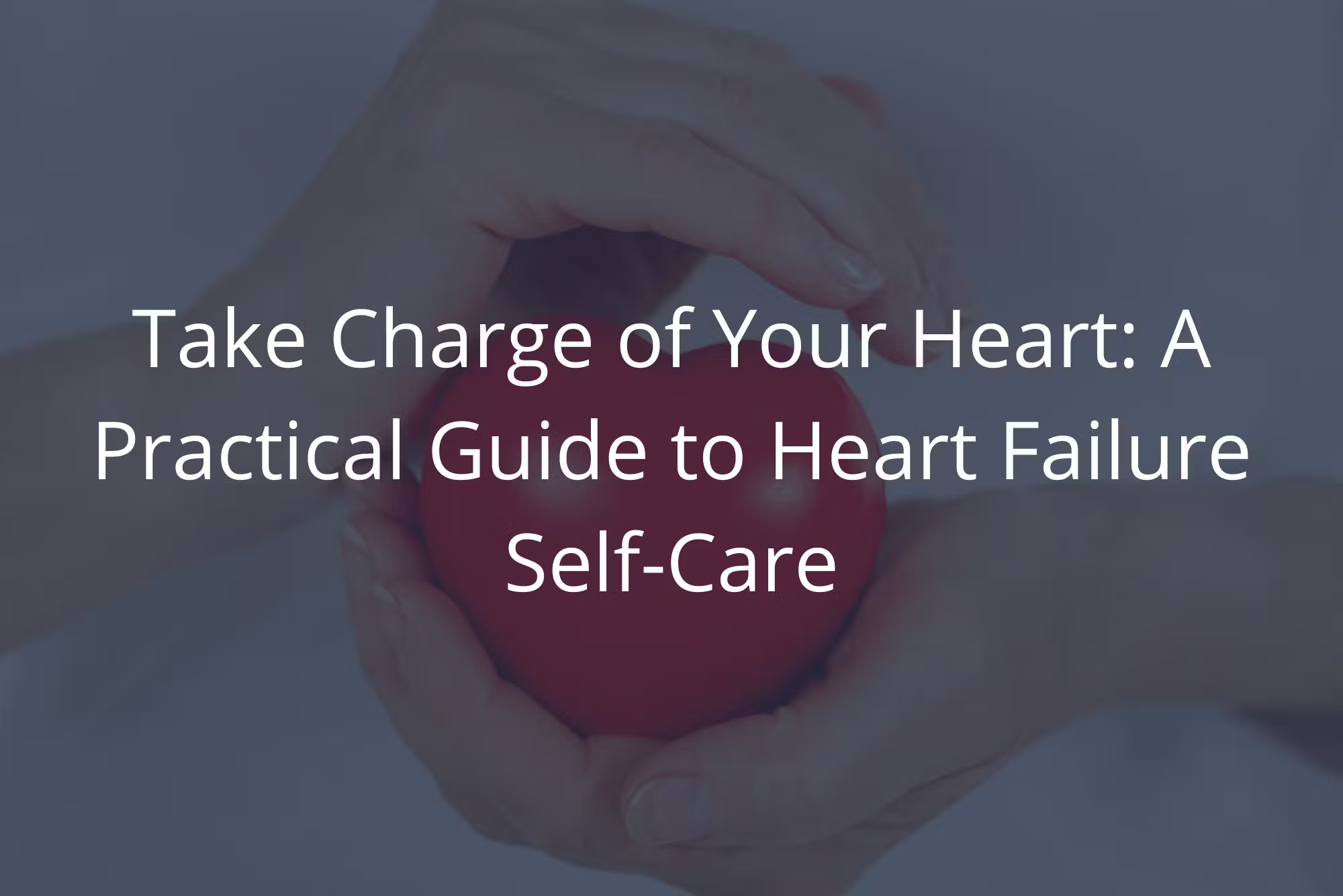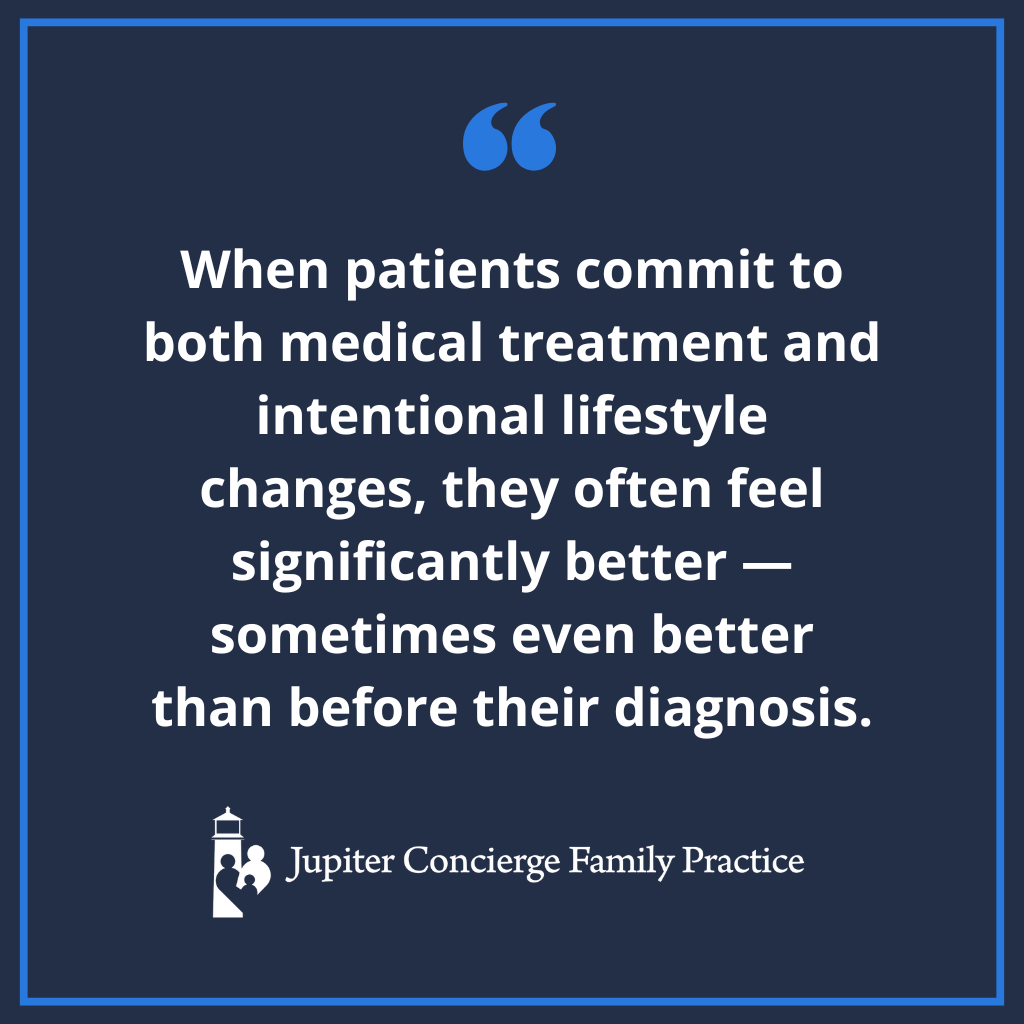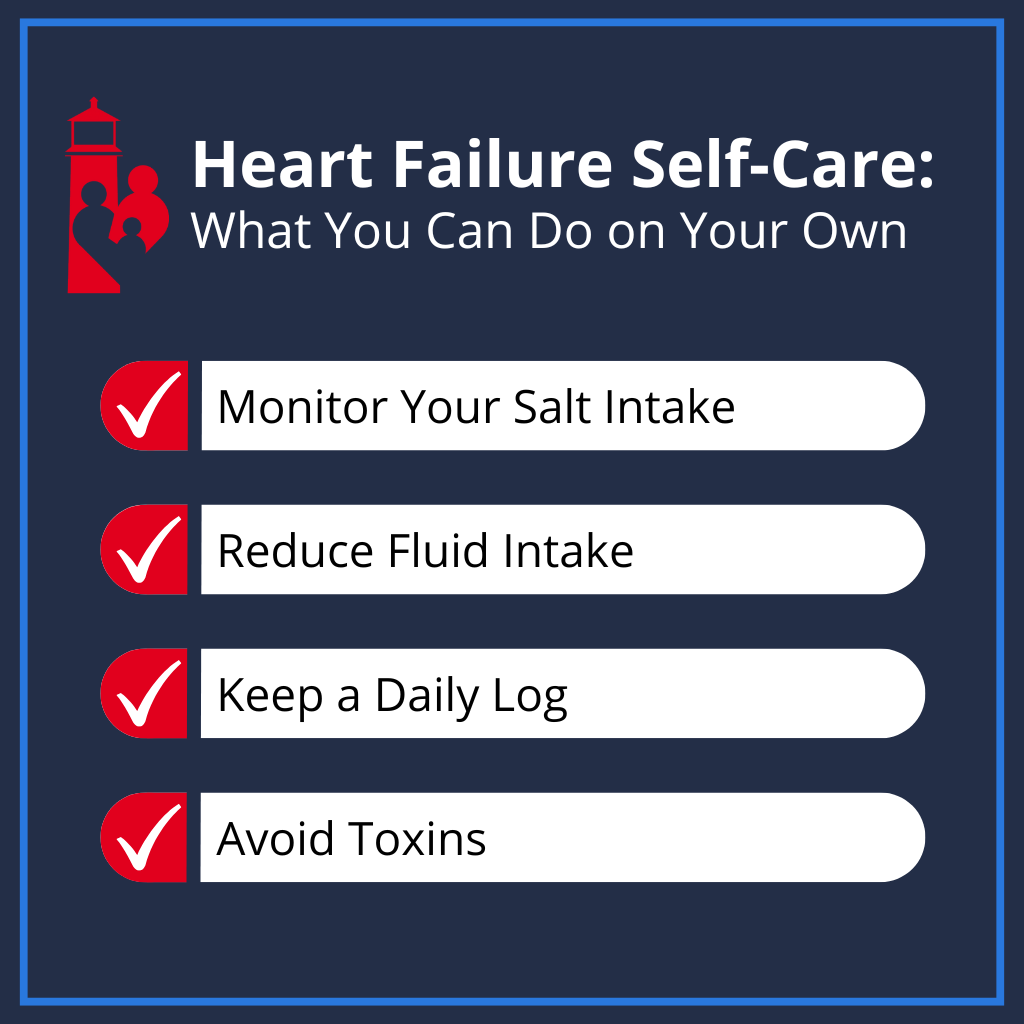
One of the most common heart problems I see in my office is heart failure.
Heart failure can be a difficult diagnosis to receive, and many people assume it marks the beginning of the end. But that’s not how I see it.
The way I approach heart failure, or any diagnosis, is to ask: What can I do to better myself now? This is where heart failure self-care comes in.
Taking prescribed medications is an important component of heart failure self-care, absolutely. But many opportunities for improving your symptoms come in non-pill form as well.
Let’s take a look at heart failure self-care options, including both medications and lifestyle changes.
Understanding Heart Failure: Two Types
When the heart pumps, it sends blood out to nourish and oxygenate the rest of the body. When the heart relaxes, blood re-enters the heart to supply it with all those vital components as well.
The two types of heart failure — systolic and diastolic — have to do with the two crucial elements of heart function.
Systolic heart failure means there’s a problem with the heart’s pumping action. In other words, the heart isn’t pumping with enough strength to circulate blood effectively.
Diastolic heart failure means there’s a problem with the heart relaxing. In other words, the heart doesn’t relax properly after it pumps, and the heart can’t take in the blood supply it needs.
These differences matter because heart failure treatments aren’t one-size-fits-all. What helps one form of heart failure may not help the other.
Common Symptoms of Heart Failure
Symptoms of heart failure vary but often include:
- Palpitations or irregular heartbeats
- Chest discomfort
- Swelling in the legs or hands
- Sudden weight gain
- Dry, nonproductive cough
- Shortness of breath when lying down (common in the middle of the night)
While these symptoms can occur with many conditions, physicians always keep the possibility of heart failure at the back of their minds when these signs appear.
What Causes Heart Failure?
Several conditions can lead to heart failure, including:
- Sleep apnea
- Coronary artery disease (blocked arteries)
- Heart rhythm issues, like atrial fibrillation or ventricular tachycardia
- Cardiomyopathies (problems with the heart muscle itself) caused by damage from toxins (including alcohol) or infections (even the flu)
- Amyloidosis, a rare condition where abnormal proteins build up in the heart
- Congenital heart defects, such as a patent foramen ovale
Heart Failure Self-Care: Taking Your Medications
Medications can improve heart function and reduce symptoms for patients with heart failure. Even if they only achieve a 10–20% improvement in function, that improvement can make a big difference in how you feel!
The medication you receive will depend on the type of heart failure you’re experiencing. Common types include:
- Antiarrhythmics to help manage irregular heart rhythms
- Diuretics to reduce fluid burden on the heart
- Medications that support heart muscle contraction, some of which overlap with blood pressure drugs
Heart Failure Self-Care: What You Can Do on Your Own
Heart failure self-care is just as essential for managing your condition as prescriptions. To protect heart function and reduce symptoms, try these strategies:
Monitor Your Salt Intake
Salt intake isn’t just a blood pressure issue. Too much salt adds to the heart’s fluid burden, which can overwhelm the already struggling muscle. Limiting salt helps your body maintain a better balance.
Reduce Fluid Intake
Similarly, it’s important to limit your fluid intake appropriately. Reducing the amount of fluid your heart has to move helps lessen the burden on your heart and prevents fluid from backing up into your lungs — a common issue with congestive heart failure.
Keep a Daily Log
Note what you eat, drink, how you sleep and exercise, and what makes you feel better or worse, even regarding medications. Tracking these patterns will help you and your doctor adjust your care intelligently.
Avoid Toxins
An important element of heart failure self-care is avoiding toxins that can cause additional damage and burden. Examples include alcohol and processed foods, and smoking should be avoided at all costs. For people with a cardiomyopathy caused by alcohol, even a small amount can be detrimental.
Focus on the Four Pillars of Health
Even and especially in heart failure, practicing good SENSE is a beneficial form of heart failure self-care:
- Sleep: Make sure you’re sleeping enough, giving your heart adequate time to rest and balance fluids. If excessive fatigue is keeping you in bed, however, be sure to tell your doctor.
- Exercise: Exercising helps strengthen the heart and all the other components of circulation. Let your tolerance level be your guide. Even if you used to run marathons, walking a brisk mile or two might be your new baseline — and that’s okay. Gentle exercise is still exercise.
- Nutrition: Focus on whole, nourishing foods to support repair and reduce inflammation. If needed, consult a certified nutritionist for specific input for your situation.
- Stress Elimination: Stress hormones affect your heart rate and blood pressure. When your heart is already vulnerable, eliminating stress isn’t optional; it’s essential.
Maintain Good Communication With Your Doctor
Heart failure self-care isn’t meant to work in isolation. Your physician is an important part of your health maintenance and needs regular updates about everything from lifestyle changes to new symptoms.
That means:
- Bring all your medications with you to every appointment, even if you think your doctor already knows what you’re taking.
- In addition to your symptoms log, keep a record of your daily blood pressure and heart rate. A home blood pressure cuff or smartwatch can help.
- If you use a smartwatch, pay attention to alerts about rhythm abnormalities like atrial fibrillation. These devices can help catch intermittent problems that in-office testing might miss.
- Discuss any lifestyle changes you make as part of your heart failure self-care. If you weren’t exercising before and now you are, tell your doctor. If you’ve cut back on salt or fluid, that matters, too. We need that information to adjust your care plan appropriately.
Heart Failure Self-Care: Rewrite Your Story
A heart failure diagnosis doesn’t have to mean the end to quality of life. In fact, the diagnosis itself often motivates people to remove health hindrances and introduce beneficial strategies.
So if you take nothing else away from this, remember this: You are not powerless.
In my experience, when patients commit to both medical treatment and intentional lifestyle changes, they often feel significantly better — sometimes even better than before their diagnosis. When you approach heart failure self-care as an active partner in your own health, your life can get better.


Dr. David Rosenberg
Dr. Rosenberg is a board-certified Family Physician. He received his medical degree from the University of Miami in 1988 and completed his residency in Family Medicine at The Washington Hospital in Washington, Pennsylvania in 1991. After practicing Emergency Medicine at Palm Beach Gardens Medical Center for two years, he started private practice in Jupiter, in 1993. He is an avid baseball fan and Beatles fanatic, since he was 8 years old. He has been married to his wife, Mary, since 1985 and has three grown children.
David completed additional studies at Mercer University, Macon, Georgia and obtained a BS in Chemistry in 1983.
“My interests include tennis, snow skiing, Pilates and self-development.”

Subscribe to our Newsletter!
Receive latest blog posts, health tips, and exclusive offers from Jupiter Concierge Family Practice straight to your inbox.

